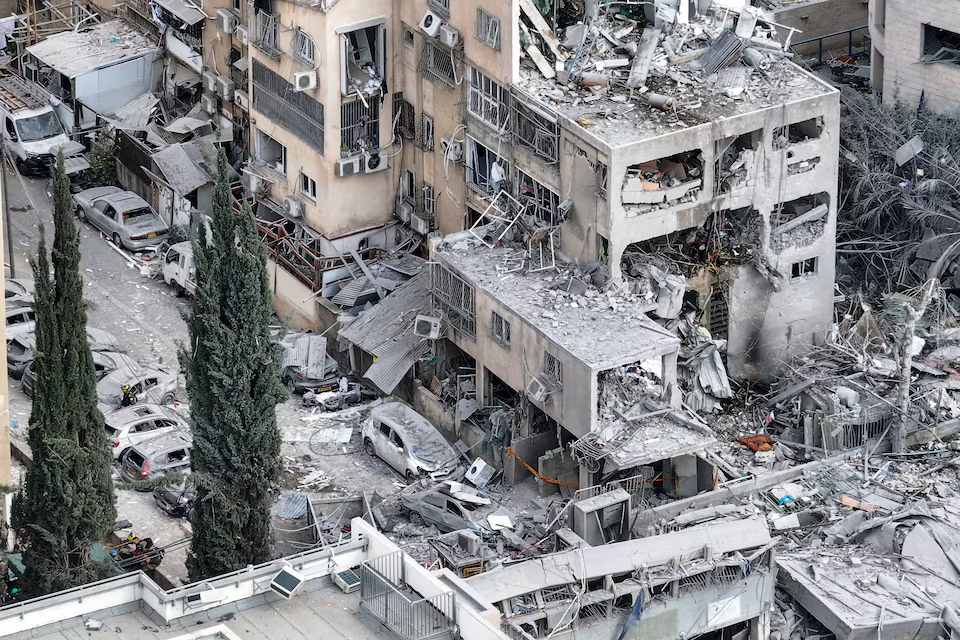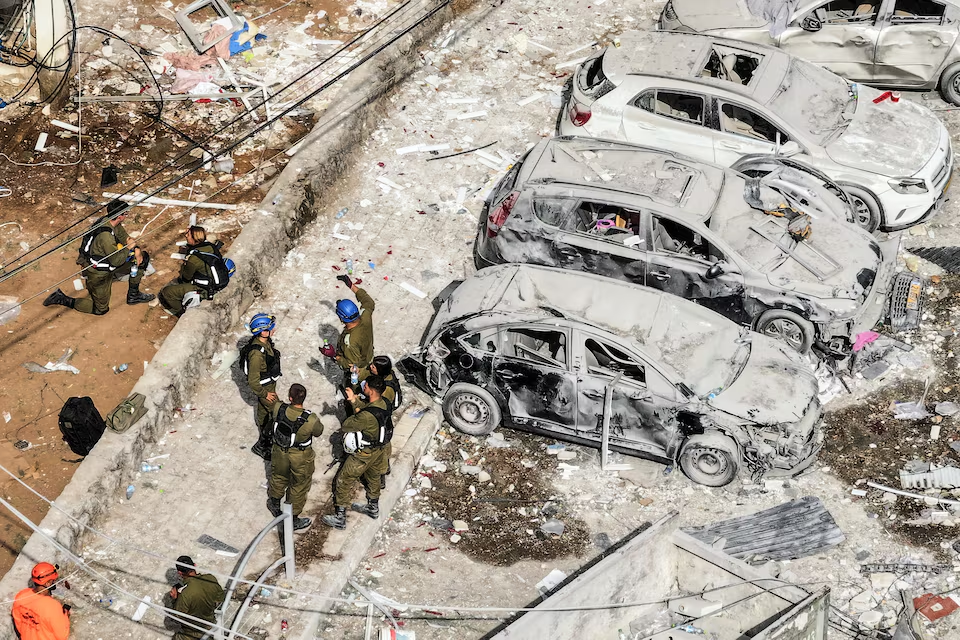Summary of Key Developments
- Iran urges U.S. to push Israel for ceasefire
- IAEA confirms major damage to Iran’s uranium enrichment plant
- Iran reports 224 dead; Israel reports 24 deaths
- Oil prices dip amid potential de-escalation hopes
Israeli Airstrike Targets Iranian State Media Center
TEL AVIV/DUBAI – The ongoing conflict between Israel and Iran intensified on Monday after an Israeli airstrike hit Iran’s state broadcasting authority. Live television footage showed a news anchor fleeing her desk moments before a blast shook the building. Israel later confirmed the strike, stating the facility also served as a military communications hub.
China’s Secret Cargo Flights to Iran Raise Global Alarm Amid Israel-Iran Conflict
Iran Responds with Missile Barrage, Casualties Climb
The fifth day of escalating conflict saw Iran launching additional missile attacks on Israeli cities including Tel Aviv, where air raid sirens rang out after midnight. Iran’s Revolutionary Guards claimed the use of new missile techniques that disrupted Israel’s defense systems.
Tehran confirmed 224 Iranian deaths, mostly civilians. Israel reported 24 civilian deaths, and nearly 3,000 residents have been evacuated due to structural damage, according to Israeli officials.
Iran Appeals to Trump: Urge Netanyahu to Halt Offensive
Iran’s Foreign Minister Abbas Araqchi contacted European leaders and requested Gulf nations — Oman, Qatar, and Saudi Arabia — to relay a message to U.S. President Donald Trump: push Israel to accept an immediate ceasefire.
In exchange, Tehran signaled willingness to return to the negotiating table over its nuclear program. Araqchi said via X (formerly Twitter),
“It takes one phone call from Washington to muzzle someone like Netanyahu.”
Netanyahu and Trump Weigh In on Ceasefire Possibility
Israeli Prime Minister Benjamin Netanyahu reiterated that Israel’s objective remains the elimination of Iran’s nuclear and missile threats.
“We gave it a 60-day chance. If it can be achieved another way – fine,” he told reporters.
President Trump confirmed he had given Iran a deadline to halt uranium enrichment.
“A deal will be signed, or something will happen. Iran is basically at the negotiating table,” Trump said at the G7 summit in Canada.
IAEA Confirms Major Damage at Natanz Enrichment Facility
Rafael Grossi, head of the International Atomic Energy Agency (IAEA), told the BBC that the Natanz nuclear site, home to 15,000 centrifuges, suffered “extensive damage or destruction” due to a power cut caused by an Israeli airstrike. Iran’s Fordow plant remained mostly intact.
Iran’s Missile Strikes Cause Chaos in Israel
Before dawn Monday, Iranian missiles struck Tel Aviv and Haifa, killing at least eight and destroying homes. One of the missiles hit a power station operated by Bazan Energy, killing three workers and forcing a refinery shutdown.
In Iran, state television showed devastated presidential buildings, burning vehicles, and crowds fleeing Tehran. Banks and gas stations were overwhelmed as panic spread.
“My children can’t sleep. We have nowhere to go,” said Gholamreza Mohammadi, a civil servant sheltering in place.
Iran Considers Nuclear Treaty Withdrawal
In a dramatic move, Iranian lawmakers discussed withdrawing from the Nuclear Non-Proliferation Treaty (NPT) — a potential blow to diplomatic efforts. Though Iran claims its nuclear intentions are peaceful, the IAEA recently confirmed Tehran had breached prior obligations.
Conclusion: War Escalation Tests Global Diplomacy and Regional Stability
As Israel’s military campaign continues to cripple Iranian nuclear infrastructure and provoke retaliatory missile barrages, the risk of a full-scale regional war grows. With over 200 Iranian civilians and dozens of Israelis dead, the humanitarian toll is mounting.
Iran’s conditional offer to return to nuclear negotiations — in exchange for a U.S.-mediated ceasefire — presents a diplomatic opening. Yet, with both sides digging in and nuclear tensions rising, the path to de-escalation remains uncertain.
Global powers now face a critical choice: pursue diplomacy amid chaos or allow the Middle East’s deadliest confrontation in decades to spiral further out of control.



1 thought on “Israeli Strike Hits Iranian State Broadcaster as Tehran Calls on Trump to Push for Ceasefire”